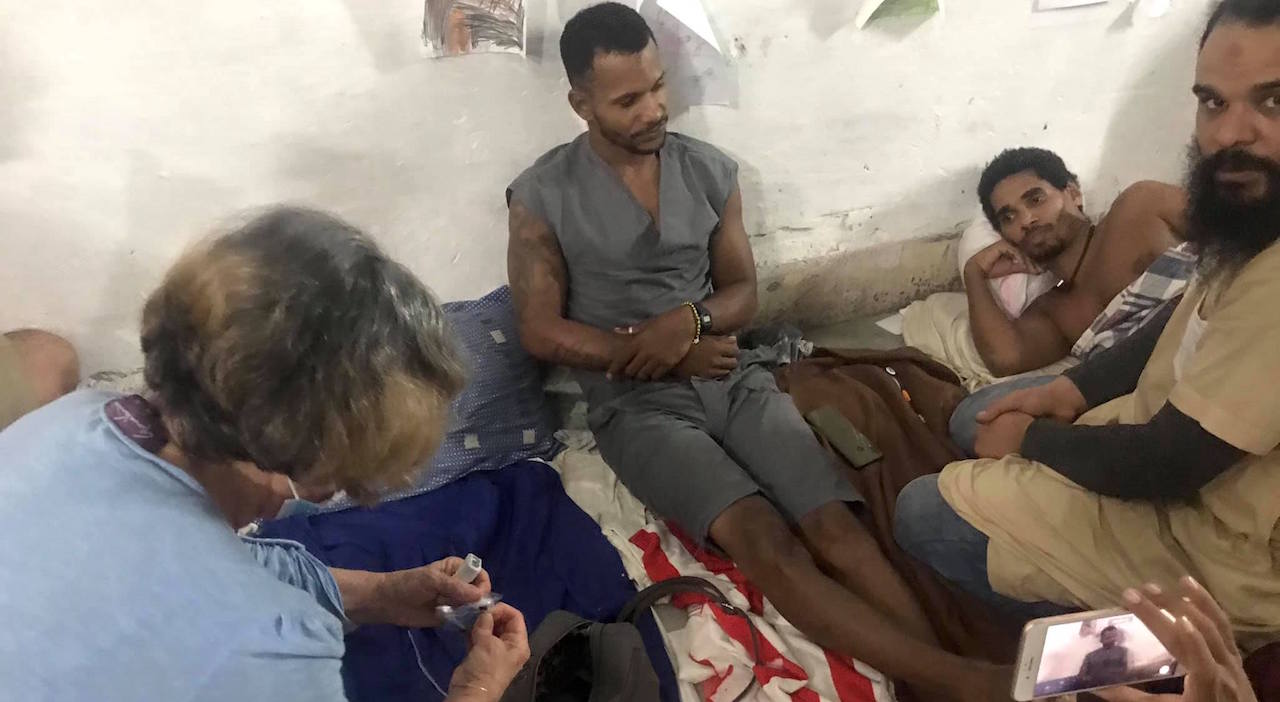In recent days regime media, including on television, have accused rapper Denis Solís —sentenced to eight months in prison on false accusations of "contempt"—of being "associated with terrorist groups" in the United States. It has also depicted the members of the San Isidro Movement, who are demanding Solís's freedom through artistic actions and a hunger strike, as a CIA-created group comprised of "people of low moral character and without any ethics."
Smear campaigns against dissidents, and now against the artists, art critics, curators, poets and rappers who form part of the San Isidro Movement, are a standard practice of the regime's against its adversaries. In a country where the only legal press is that controlled by the state, the authorities slander critical citizens with impunity, without giving them any right to refute the accusations levelled at them. The lack of judicial independence in Cuba, and a tailor-made legal system, make this possible.
Personal rights like that to one's good name are, theoretically, protected by the Constitution. The regime's legal framework, however, neglects victims and protects state institutions.
The Cuban Criminal Code and Procedure Law do not specifically uphold the principle of the "presumption of innocence." It does appear in Popular Supreme Court Directive 247 of March 23, 2020, which mentions the "necessary observance of the principles of presumption of innocence, effective judicial protection, and others that inform the criminal due process, to achieve effectiveness and uniformity in the evidence assessment system ".
All people are to be presumed innocent until proven otherwise. Therefore, it is illegal to officially state that someone is a "terrorist" or is "associated with terrorism" if they have not been convicted of this crime. Doing so violates the rules of due process.
Who should be held accountable for the possible crimes of defamation, libel and slander against Denis Solís and the San Isidro Movement? The journalists who were the authors of the material, or the media source that disseminated it? Where is the criminal response to this crime?
Articles 318, 319 and 320, specifically intended to protect the good names and honor of individuals, cannot be used against companies or state institutions.
"Criminal responsibility is enforceable against natural and legal persons", says Article 16. "Legal persons are criminally liable for the crimes set down in this Code, or in special laws, committed within the sphere of action of said legal persons, when they are perpetrated through their representation, or an agreement of their associates, without prejudice to the individual criminal liability incurred by the perpetrators or accomplices to the punishable act."
Furthermore, Article 16.4 of the Code states: "legal persons shall be subject to the enforceability of criminal liability in cases of cooperatives, legally constituted companies and associations, foundations, non-state companies authorized to carry out their activities, and other non-state entities legally conferred with status as legal persons."
Under the provisions of the Criminal Code, claims could only be brought against the journalists as natural persons, but they would be able to defend themselves by invoking their professional responsibilities, or the mandate of the state institution that employs them.
The slandered parties would have recourse to the civil channel. Article 38 of the Civil Code states that "the violation of the rights inherent to the individual, enshrined in the Constitution, affecting the assets or good name of the person in question, confers upon him ... the right to demand: a) immediate cessation of the violation or the elimination of its effects, if possible; b) retraction by the offender; and c) compensation for damages suffered."
According to Article 95, "legal persons are obliged to make redress for damages caused to others by illegal acts committed by their leaders, officials and other workers in the exercise of their functions."
If the crime is committed by directors, officials or other workers "in the improper exercise of their functions, the legal person shall be subsidiarily liable." The legal person "shall also stand liable for damages caused by directors, officials or other workers who have acted in the exercise of their duties, or out of due obedience, and who, owing to this circumstance, have been declared exempt from criminal liability."
The Civil Code considers legal persons "entities that, having their own assets, have the capacity to be possessors of rights and obligations." This also applies to the state and the unions of state companies.
It remains to be seen whether in Cuba, where the political power controls the judiciary - although the regulations officially state that judges only owe obedience to the law - the rights included in the new Constitution really protect those who criticize the government, at least through the civil channel.
